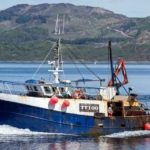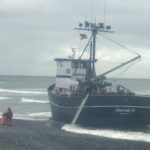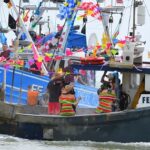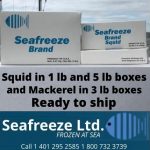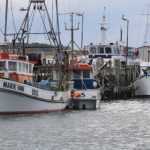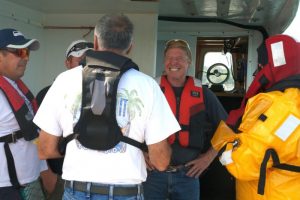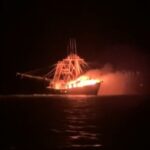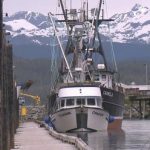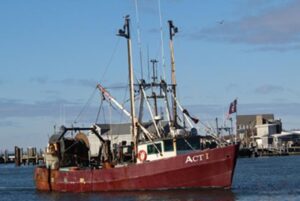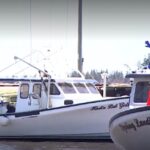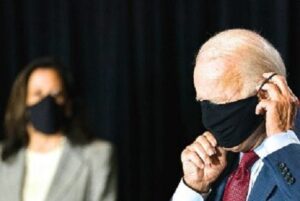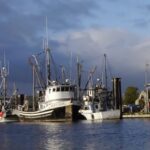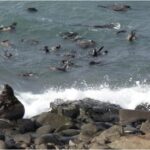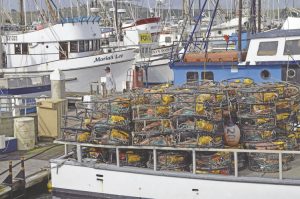Tag Archives: U.S. Exclusive Economic Zone
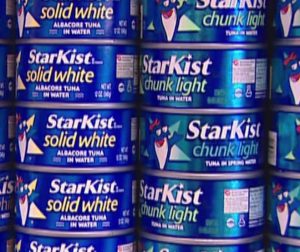
NOAA’s Sanctuary Expansion Proposal: ‘The nail in the coffin’ of American Samoa’s tuna industry
A regional fishery council warned that the Biden administration’s plan to block off the U.S territorial waters in the Pacific would be the end of American Samoa’s tuna canning industry and quash the culture which the federal government claims to protect. While commercial fishing is currently allowed within 50 to 200 miles of the Pacific Remote Islands Marine National Monument, the National Oceanic Atmospheric Agency’ssanctuary expansion proposal would completely cover the U.S exclusive economic zone, prohibiting commercial fishing by U.S fishermen in U.S waters. “For more than 30 years, American Samoa-based purse seiners and Honolulu-based longliners operated in the waters of the Pacific Remote Islands Area until the establishment of the PRIMNM in 2006,” the Western Pacific Fishery Management Council said. “This new action will force U.S purse seiners to fish farther away from Pago Pago Harbor and transport their catch to Mexico and Ecuador instead of the StarKist Samoa cannery, which serves as the backbone of American Samoa’s economy,” the council added.>click to read< 15:45
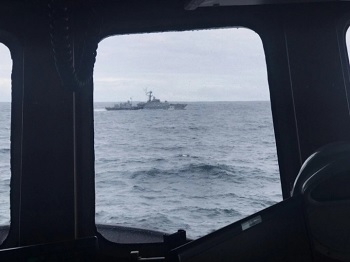
‘Are We Getting Invaded?’ U.S. Fishing Boats Faced Russian Aggression Near Alaska
Capt. Steve Elliott stood dumbfounded on the trawler Vesteraalen as three Russian warships came barreling through, barking orders of their own. On the ship Blue North, commands from a Russian plane led Capt. David Anderson to contact the U.S. Coast Guard, wondering how to protect his crew of 27.,, “The Coast Guard’s response was: Just do what they say.” This summer, Russia’s military operated in the Bering Sea, home to America’s largest fishery, where boats haul up pots crawling with red king crab, and trawlers dump nets filled with 200 tons of pollock onto their decks. >click to read< 18:26
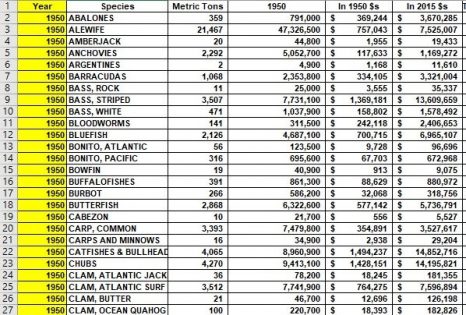
Commercial Fishing in the U.S. Exclusive Economic Zone – What was being caught and where back to 1950
What is the status of commercial fishing in the U.S. Exclusive Economic Zone, the waters from 3 to 200 miles off our coastline? Generally speaking – something that the “bureaucrats in charge” have developed a great deal of facility in doing – it’s pretty good. Since the National Marine Fisheries Service started getting serious about tracking commercial landings (or at making those landings readily accessible) in 1950, the total weight of our domestic landings has increased from 4.9 billion to 9.8 billion pounds. The value of those landings, when corrected for inflation, has increased from $3.3 billion to $5.2 billion, almost as good. Nils E. Stolpe/FishNet USA >click to read<17:03
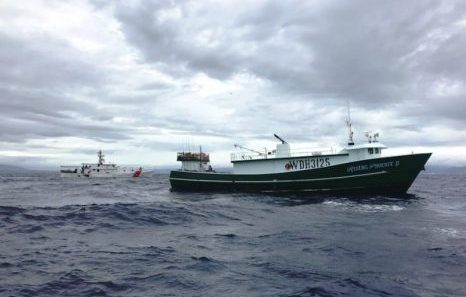
Coast Guard Cutter Oliver Berry completes at-sea fisheries enforcement patrol off Hawaii
The crew of Coast Guard Cutter Oliver Berry (WPC 1124), a 154-foot Fast Response Cutter homeported in Honolulu, recently completed a 10-day patrol of the U.S. Exclusive Economic Zone in the Hawaiian Islands region. They conducted six boardings on Hawaii-based, U.S.-flagged long-line fishing vessels and issued eight safety and fisheries regulations violations.,, On Dec. 19, while conducting a boarding of a U.S.-flagged longline fishing vessel, the boarding team suspected a foreign national was acting as the vessel captain and operating the vessel. click here to read the story 18:13 
I.U.U. Fishing/The latest supposed ocean crisis/All the news that’s fit to print?
 Nils Stolpe/FishNet USA – Over the past several years there has been much discussion, debate, posturing, misrepresentation, exaggeration and incipient empire building on and around the subject of illegal, unreported and unregulated (IUU) fishing. Most of this has been driven by ENGOs and the mega-foundations that support them because they have all of these fish saviors on the payroll with, since the demise of overfishing, not an awful lot to do. Not surprisingly the Obama administration has been complicit in this. Starting out with a point of clarification, IUU fishing is, or should be, a concern in some areas of the world’s oceans – but for reasons that I’ll get to an a bit, it isn’t, or shouldn’t be, in the U.S. Exclusive Economic Zone (EEZ). In spite of this you can bet dollars to donuts that that’s where all of the ENGOs will be focusing their IUU efforts, because it’s a lot more comfortable, convenient and safe to assault domestic fishermen from their cushy digs in Philadelphia or Washington DC than from some tropical or sub-tropical Hell hole where most of the IUU activity is based. And, I’m sure the feeling in those cushy digs in Philadelphia and Washington is that the public and the pols aren’t sophisticated enough to realize this, and in all likelihood – thanks to the mega-million dollar PR juggernaut that is backstopping their efforts – never will be. To read the complete article, click here 15:15
Nils Stolpe/FishNet USA – Over the past several years there has been much discussion, debate, posturing, misrepresentation, exaggeration and incipient empire building on and around the subject of illegal, unreported and unregulated (IUU) fishing. Most of this has been driven by ENGOs and the mega-foundations that support them because they have all of these fish saviors on the payroll with, since the demise of overfishing, not an awful lot to do. Not surprisingly the Obama administration has been complicit in this. Starting out with a point of clarification, IUU fishing is, or should be, a concern in some areas of the world’s oceans – but for reasons that I’ll get to an a bit, it isn’t, or shouldn’t be, in the U.S. Exclusive Economic Zone (EEZ). In spite of this you can bet dollars to donuts that that’s where all of the ENGOs will be focusing their IUU efforts, because it’s a lot more comfortable, convenient and safe to assault domestic fishermen from their cushy digs in Philadelphia or Washington DC than from some tropical or sub-tropical Hell hole where most of the IUU activity is based. And, I’m sure the feeling in those cushy digs in Philadelphia and Washington is that the public and the pols aren’t sophisticated enough to realize this, and in all likelihood – thanks to the mega-million dollar PR juggernaut that is backstopping their efforts – never will be. To read the complete article, click here 15:15
Coast Guard releases illegally caught fish
 CORPUS CHRISTI, Texas — The crew of a Coast Guard Cutter, working with Operation Sea Serpent, recovered fish and shark caught illegally on longline gear by a Mexican lancha Friday in the Gulf of Mexico. The cutter’s crew located a Mexican lancha suspected of illegally fishing in the U.S. Exclusive Economic Zone. They pursued the lancha, but were unable to intercept it. After returning to the lancha’s original location, the cutter’s crew located and retrieved 500 yards of abandoned longline gear with 17 sharks, four Red Snapper and two eels. Approximately 75 percent of the catch was still alive and was released. – Read more here 19:39
CORPUS CHRISTI, Texas — The crew of a Coast Guard Cutter, working with Operation Sea Serpent, recovered fish and shark caught illegally on longline gear by a Mexican lancha Friday in the Gulf of Mexico. The cutter’s crew located a Mexican lancha suspected of illegally fishing in the U.S. Exclusive Economic Zone. They pursued the lancha, but were unable to intercept it. After returning to the lancha’s original location, the cutter’s crew located and retrieved 500 yards of abandoned longline gear with 17 sharks, four Red Snapper and two eels. Approximately 75 percent of the catch was still alive and was released. – Read more here 19:39

































